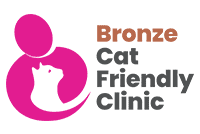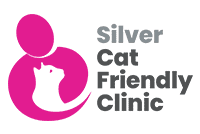Please click the links below for more information
Equine Vaccinations
Horses can be vaccinated from 6 months of age. The core vaccines are for equine influenza (flu) and tetanus.
Equine Influenza
Equine influenza is caused by the equine influenza virus. Symptoms can be quite severe and include a high temperature, cough, depression, loss of appetite, nasal discharge and stiffness. There are many different strains of flu virus and, like human flu, the virus is changing all the time. If your horse is stabled on a busy livery yard or regularly goes to competitions, it is essential that they are vaccinated against influenza.
Tetanus
Horses are very susceptible to tetanus infection. Tetanus is a disease caused by the bacterium Clostridium tetani and is often fatal in unvaccinated horses. We strongly recommend that you get all your horses and donkeys vaccinated against tetanus.
We usually use a combined vaccine to vaccinate against both flu and tetanus. A primary course of three vaccines is required:
- 1st vaccine
- 2nd vaccine 21 - 92 days after 1st
- 3rd vaccine 150 - 215 days after 2nd
- Annual booster up to 365 days after 3rd
Following this, an annual booster is necessary to maintain your horse’s immunity. We will send you messages to remind you of your horse’s yearly boosters, but there is no reminder service for the vaccines due in a primary course. If your horse is competing, then they may need a booster vaccine every 6 months under FEI rules in order to be eligible to compete.
It is possible to vaccinate solely against tetanus if your horse doesn’t come into contact with other horses regularly. This requires a primary course of 2 vaccines, 21-92 days apart, then a bi-annual booster.
Other diseases that can be vaccinated against, on veterinary advice, are:
Equine Herpes Virus 1 + 4
Equine herpes virus can a cause a number of varying signs, including severe respiratory disorders, severe neurological disorders and, in pregnant mares, abortion (depending on the strain contracted). Horses that travel to large events and shows or who are on very busy yards are at the greatest risk. All pregnant mares should be vaccinated to prevent abortion and to pass immunity onto their foal via the colostrum.
Streptococcus equi (Strangles)
Strangles is a severe bacterial infection affecting mainly the upper respiratory tract and lymph nodes in the neck.
For further advice, please contact us about the possible benefits of vaccination.
Equine Dentistry
Horses are herbivores that have evolved to constantly graze and chew grass. Horses have 'hypsodontal' teeth that erupt slowly over the course of their lives. This constant eruption and the constant wear of grazing is the reason why all horses require regular dental treatment.
Common Dental Problems
Rostral and Caudal Hooks
In many horses, the upper dental arcade overhangs the lower arcade. If prominent, this is termed brachygnathism ('parrot mouth'). This corresponds with the arcades being slightly out of line with one another therefore the first upper cheek tooth and the last lower cheek tooth are not worn down fully and can develop hooks. Hooks need to be rasped off as they prevent the upper and lower teeth sliding over each other when a rider attempts to collect the horse resulting in poor response to the bit. In severe untreated cases hooks can grow into the opposing gum.
Lateral and Medial enamel points
Horses can only chew one side at a time when eating. They use their large molars to crush and break down the high-density fibre in their hay and grass. This occurs over an occlusal surface, which is on a slant between 12 and 15 degrees. Over the course of time, this leads to sharp points developing over the buccal (cheek) side on the upper molars and the lingual (tongue) side on the lower molars. Unless the sharp points are rasped off, they can cause tongue and cheek ulceration. When sharp points dig into the soft tissues of the mouth, the horse will stop chewing, drop partly chewed food (this is termed 'quidding'), and respond poorly to the bit.
Diastemata
Are abnormal gaps between horses' teeth. Large gaps are not usually a problem in older horses but smaller gaps become impacted with food, which rots and can cause gum inflammation (gingivitis) and a foul-smelling breath. Inflamed diastemata are thought to be one of the most painful conditions of the mouth. Treatment involves power flushing to wash out all the debris. The gaps are then filled with pliable putty to prevent re-impaction and allow healing. In some cases, a course of antibiotics and anti-inflammatories are required. Flushing and packing should be carried out every 3 months.
Wolf teeth
Are vestigial first premolars. Extraction of wolf teeth is only recommended when you are having biting problems and not as a routine preventative procedure. Unlike all the other teeth, wolf teeth only have short roots and are quite easy to remove under sedation with a little local anaesthetic. NB equine dental technicians can only remove wolf teeth by law "under constant veterinary supervision". At Shires, our equine vets regularly remove wolf teeth.
Who can do what in a horse’s mouth?
Firstly, there is no such thing as an "equine dentist". The title "dentist" is a protected title for human dentists who have undergone University training. In the UK, those who will perform equine dentistry are vets, vets who specialise in dentistry and equine dental technicians (EDT). If you use an EDT please ensure they are members of the BAEDT. We will not sedate horses for non-BAEDT members. Please check the BAEDT register to ensure your technician is a registered member.
Equine Dentistry and Sedation
Some horses will not tolerate the gag or having their teeth rasped either manually or with the motorised tools. However, this not an excuse to neglect their dental care. We can sedate these horses, allowing us to perform a thorough dental exam and treatment. A dentistry sedation fee has now been set and is of great value and benefit for your horse.
Some conditions may require us to sedate your horse such as diastemata, or sharp points that have caused oral ulceration. However, sedation allows us to work in a safe and effective environment, to carry out a thorough examination and to provide treatment that is non-traumatic for your horse.
Equine Worming
Single Dose Worming Plan
This pack contains one Equest Pramox tube, three Faecal Egg Count forms with sample pots, one tapeworm ELISA blood sample voucher, an advice sheet and includes the visit for the blood sample.
There are ever increasing reports of worm resistance! It is vitally important that we try to reduce the number of wormers that are being used and look towards more scientific strategic methods of worming.
This protocol not only significantly reduces the amount of wormer you are using but also helps reduce the risk of resistance. Carrying out faecal egg counts allows us to determine the worm infection of your horse/pony and strategically worm if required. The tapeworm blood test (ELISA) tells us how “exposed” your horse/pony has been to tapeworm and the likely level of infection. Reducing the amount of wormer used each year and correct dosing will help prevent further development of resistance.
Poo picking fields is recommended and will help maximise the efficacy of this pack. All field mates should be on a similar protocol or be up to date on worming. If all these criteria are met this pack should be sufficient for the worm control of your horse/pony and help prevent the increasing resistance in the worm population. If a FEC comes back as moderate or severe it may be necessary to purchase additional wormer and/or FECs.
The protocol is as follows:
- April: Faecal Egg Count
- June: Faecal Egg Count + tapeworm blood sample
- September: Faecal Egg Count
- December: Equest Pramox
Equest Pramox contains Moxidectin and Praziquantel. It treats round worms, encysted small red worm larvae, pin worm and tapeworms. It is NOW licensed for use in breeding, pregnant and lactating mares. It can be used in foals over the age of 7 months.
To get best results please ensure you dose for the correct weight of the animal. Faecal egg counts can only detect worms which have matured to patency (producing eggs), there is no test available to detect larval stages of worms.
Strategic Plan
This pack contains one Equest Pramox tube, one Noropraz tube, two Faecal Egg Count forms with sample pots and an advice sheet.
There are ever increasing reports of worm resistance! It is vitally important that we try to reduce the number of wormers that are being used.
This protocol not only reduces the amount of wormer you are using but also helps reduce the risk of resistance. Carrying out faecal egg counts allows us to determine the worm infection of your horse/pony and strategically worm if required. Reducing the amount of wormer used each year and correct dosing will help prevent further development of resistance.
Poo picking fields is recommended and will help maximise the efficacy of this pack. All field mates should be on a similar protocol or be up to date on worming. Unfortunately, it is not possible to detect tapeworm eggs on a FEC. If all these criteria are met this pack should be sufficient for the worm control of your horse/pony and help prevent the increasing resistance in the worm population.
If a FEC comes back as moderate or severe it may be necessary to purchase additional wormer and/or FECs.
The protocol is as follows:
- April: Faecal Egg Count
- June: Noropraz
- September: Faecal Egg Count
- December: Equest Pramox
Equest Pramox contains Moxidectin and Praziquantel. It treats round worms, encysted small red worm larvae, pin worm and tapeworms. It is NOW licensed for use in breeding, pregnant and lactating mares. It can be used in foals over the age of 7 months.
Noropraz contains Ivermectin and Praziquantel. It treats round worms, adult red worms, pin worm and tapeworms. To get best results please ensure you dose for the correct weight of the animal. Faecal egg counts can only detect worms which have matured to patency (producing eggs), there is no test available to detect larval stages of worms.
Equine Supplements
Glucosamine
Shires Veterinary Glucosamine is a supplement to improve the health of arthritic joints. It contains 99% high bio available Glucosamine which is essential in the repair of damaged cartilage.
Cartilage lines the ends of bones in a joint. Over time and with age cartilage can become damaged which results in pain, lameness and loss of performance.
Any horse with a high work load would benefit from glucosamine supplementation to help keep the cartilage healthy and reduce the risk of degenerative joint disease (DJD) later on in life. Older horses would benefit from glucosamine supplementation to help prevent or slow down DJD.
The supplement comes in a 1Kg tub. For the first 4 weeks the dose for a standard horse is 30g daily, then a maintenance dose of 15g thereafter. A pony requires 20g for the first 4 weeks and then a maintenance dose of 10g thereafter. A tub will last a horse on maintenance for over 66 days and a pony for 100 days.
Veterinary Haemo Tonic
Shires Veterinary Haemo Tonic is designed for horses which are in training or those which have suffered blood loss/anaemia (reduced red blood cells). For horses in training it provides optimal levels of iron and vitamin B complexes which are vital for red blood cell production, metabolic and digestive functions.
There are a number of conditions which can lead to blood loss and anaemia in the horse. These include a high worm burden, gastric ulceration and Exercise induced pulmonary haemorrhage (EIPH). Using the supplement in these cases can help the regeneration of the red blood cells and speed up return to peak performance.
The Haemo Tonic comes in a 1.2Litre bottle. Horses should be fed 30ml twice daily and ponies fed 30ml once daily. A bottle will last a horse 20 days and a pony 40 days.
Veterinary Hoof Supplement
Shires Veterinary Hoof Supplement is designed to ensure optimal hoof growth. It can be used for hooves which have suffered damage to encourage rapid repair and return to healthy conformation or for long term use in horses with poor hoof growth.
The supplement contains a number of components essential for healthy hoof growth: Biotin, Bio-available sulphur and amino acids which are integral in the synthesis of keratin (the main protein in hoof horn) and calcium which is required for structural cohesion in the hoof.
The supplement comes in a 1Kg tub. The dose for a standard horse is 20g per day and for a pony 20g every other day. This is a considerably smaller dose when compared to other supplements on the market. A tub will last a horse for 50 days and a pony for 100 days.
Veterinary Probiotic
Shires Veterinary Probiotic is a supplement to promote digestive and gut health at times of stress. It contains the probiotic Saccharomyces cerevisiae which helps the growth of “good” bacteria in the gut. It also contains fructooligosaccharides (prebiotics) which help the “good” bacteria of the gut thrive. Both of these ingredients help promote a healthy gut flora at times of stress such as antibiotic treatment, diarrhoea or even moving yard.
We have also found the probiotic useful following a change in diet, post worming, a change in turn out routine and foal heat scours.
The Probiotic comes in a 1Kg tub. Horses and ponies should be fed 20g once daily in a time of stress and then 10g daily when not in a period of stress. A tub will last a horse or pony 50 days in a period of stress.
Gastric Supplement
Shires Veterinary Gastric Supplement is a supplement suitable for feeding to horses displaying signs of gastric ulcers. This supplement will assist in maintaining optimum gut health and function, allowing maximum utilisation of feed. It should not be fed as replacement for proper gastroscopy and treatment with proton-pump inhibitors, but rather as a prophylactic means of ensuring gastric health.
A unique formulation of prebiotics, amino acids, seaweed extract and specific minerals necessary to aid in the recovery and maintenance of a healthy digestive tract, the supplement is supplied in a convenient pelleted formulation.
The supplement comes in a 3.2kg tub. Horses and ponies should be fed 100g a day, divided between their meals.






